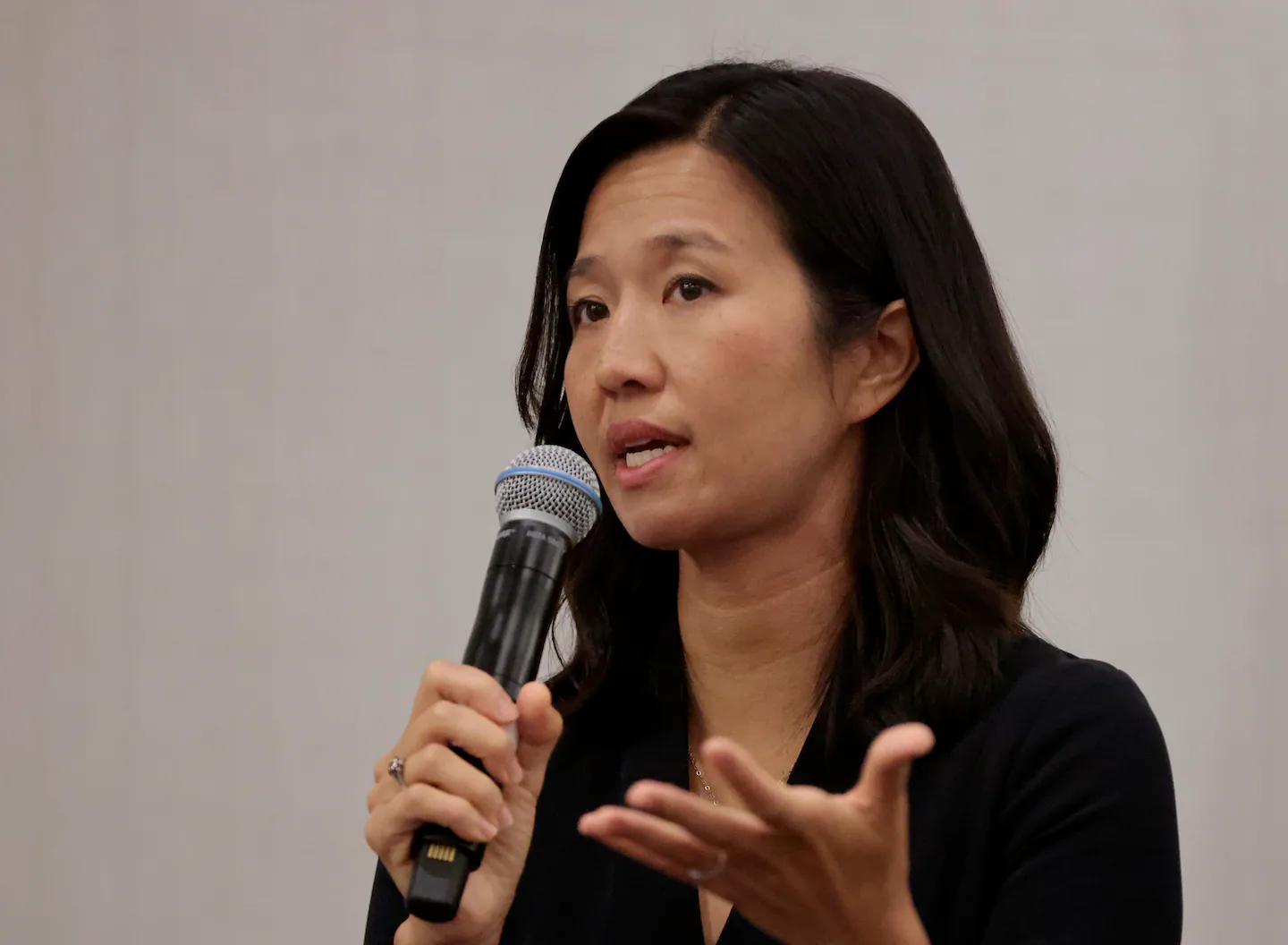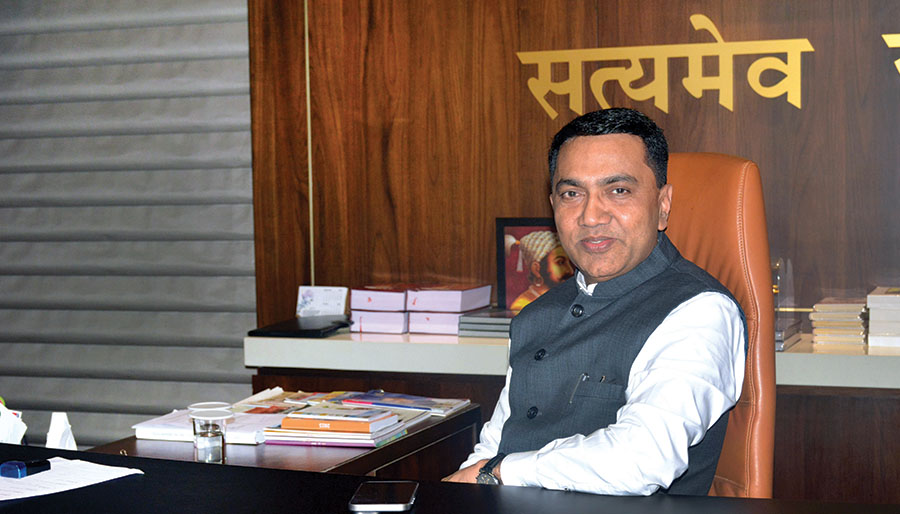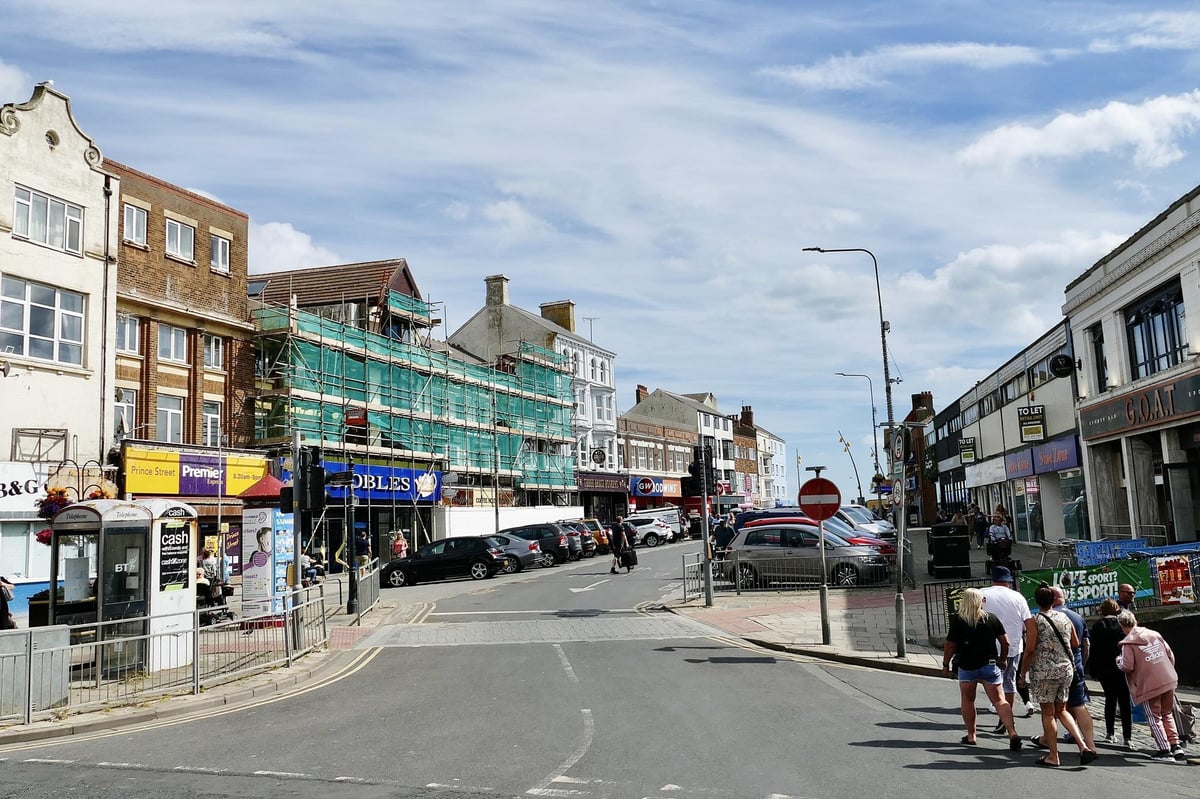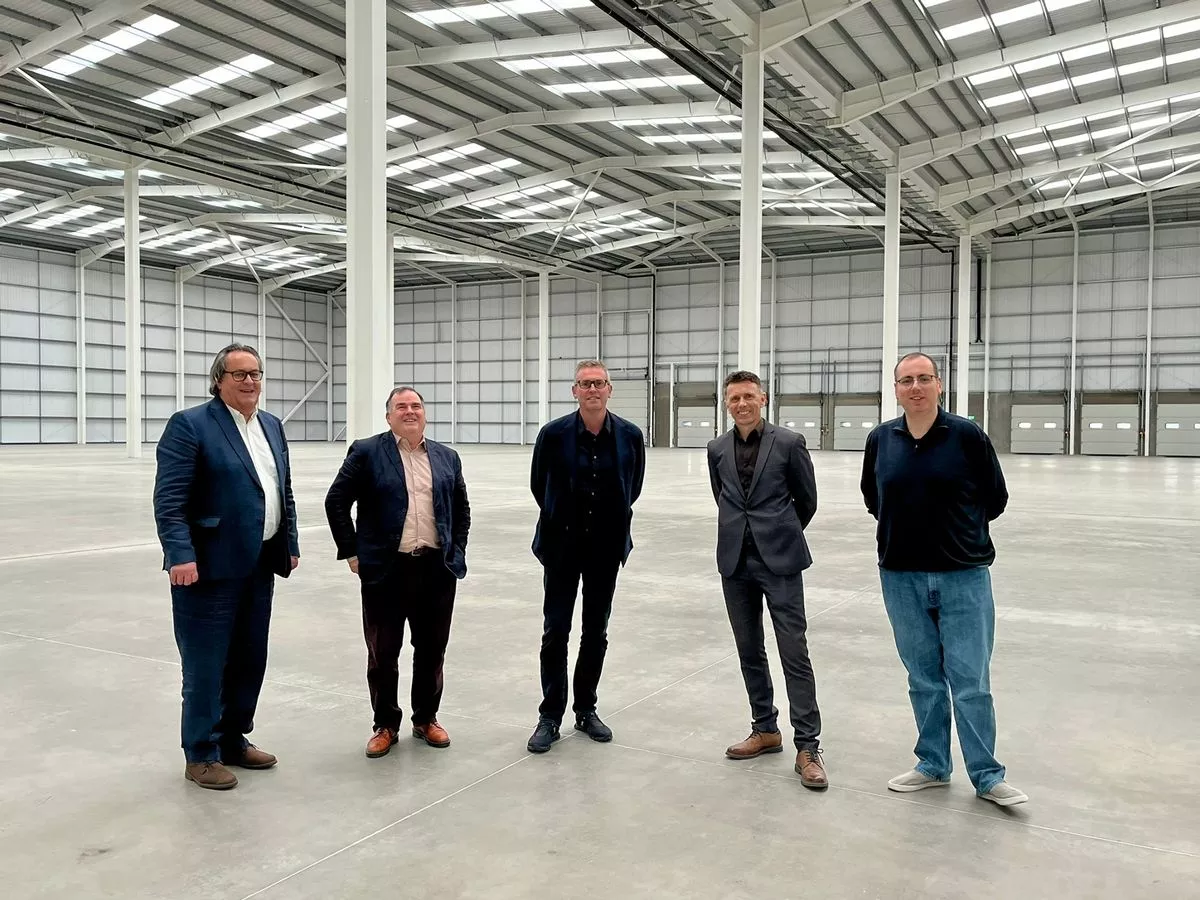
Being economically competitive isn’t about offering the best corporate tax cuts. It’s about using tax dollars wisely to make sure Boston remains a place where the best and brightest want to live and work.
That was the message Mayor Michelle Wu sent to the Greater Boston Chamber of Commerce during her annual speech to the business group, held at the Renaissance hotel in the Seaport on Monday. While many in the room might disagree, most present still greeted her with rapturous applause — two weeks after she handily won a preliminary election to put her on a path for a second term.
There were three standing ovations: One to usher her to the stage, one after she finished her speech, and one that was a bit more perfunctory after she wrapped up a Q&A session with chamber CEO Jim Rooney. Wu has gradually won over the chamber crowd during her first term; even a line celebrating the $100 million in financing that women’s soccer team Boston Legacy Football Club received from Bank of America for its part in rebuilding White Stadium won applause, despite some lingering skepticism about the project and its costs to the city.
On Monday, she told the 600-plus business leaders at the chamber event that competitiveness means not “clinging onto corporate tax cuts” on the backs of the city’s homeowners, or undoing the so-called millionaires tax, an income tax surcharge for Massachusetts residents earning over $1 million to pay for schools and transit.
Advertisement
“I want to be clear,” Wu said. “We can’t build the best city to raise a family by slashing corporate taxes, and either making it more expensive for residents to live here or cutting funding for our teachers, parks, and transportation. That’s bad for business, and bad for Boston.”
Advertisement
She did however, make the case that she’s tightening the belt at City Hall, addressing another criticism from the business community, by saying she’s eliminated around 500 city jobs, primarily by cutting open positions.
Her mention of “corporate tax cuts” was a reference to the ongoing debate about whether more of the city’s tax burden should be shifted onto commercial property owners and away from homeowners; the chamber disagrees with Wu on this, and the mayor has so far been unsuccessful in getting such a rate adjustment through the state Legislature. But Wu later told reporters the phrase was meant more broadly, too, and encompassed a state income tax cut that’s been proposed as a ballot question to counteract the millionaires tax.
Rooney gently pushed back during the Q&A, saying about taxation, “In the world of competitiveness, people who decide to bring their businesses here, or decide to locate here, it’s a factor they look at, you know that.”
Wu conceded that some financial incentives have their place: She pointed to her office-residential conversion program, which offers landlords a property tax break of 75 percent over three decades for refitting their buildings for apartments.
“[But] I think everyone in this room knows Boston is never going to be the place where people come because it’s the cheapest to do business,” Wu said.
Wu reiterated some of the other business-friendly measures her administration has taken such as streamlining permitting, repurposing city staff to focus on corporate recruitment, and allowing taller residential towers to be built in the central business district.
Advertisement
“Boston should be at the top of the list of any global company that wants to establish a presence in the United States or any West Coast company that is looking grow their market over here,” Wu said. “I believe that our value proposition is that we have the top talent [and] that this is the place where talent wants to live.”
Along those lines, she cited the news this month that Hasbro would relocate its corporate headquarters here from Pawtucket, R.I., along with Lego’s decision more than two years ago to move its North American headquarters here.
“Not only will this bring 1,500 jobs to our city,” Wu said of the two relocations, “it means that now, when the kids are begging for that Millennium Falcon Lego set at Target, they’re going to go straight to: ‘But Mom, don’t you want to support the local economy?’”
This is an installment of our weekly Bold Types column about the movers and shakers on Boston’s business scene.
Jon Chesto can be reached at jon.chesto@globe.com. Follow him @jonchesto.



